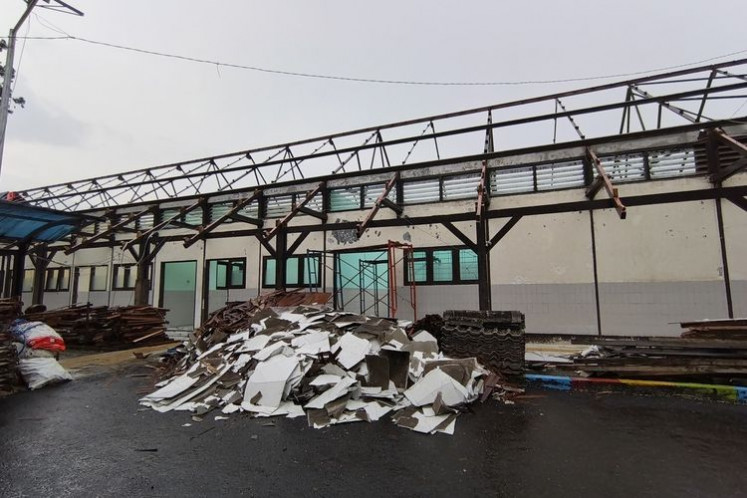Thai society faces serious social issues
Adolescent pregnancy and an ageing population could become serious social and economically destabilising factors in Thai society, if the government does not properly address them
Change text size
Gift Premium Articles
to Anyone

A
dolescent pregnancy and an ageing population could become serious social and economically destabilising factors in Thai society, if the government does not properly address them.
To mark World Population Day yesterday, the United Nations Population Fund (UNFPA) held a symposium at Centara Grand Hotel in Bangkok and released information, saying the number of adolescent mothers between the ages of 15 and 19, not ready to care for their children, was steadily on the rise. A low birth rate was also leading to an increasingly aged population that could put a strain on the Thai economy if the issue was not dealt with, the UNFPA said.
"Unwanted pregnancy affects the quality of birth for both adolescent mothers and children. The chances are high that children born of unwanted pregnancies will have less chance of becoming educated and also be denied more social opportunity," stated the UNFPA and the National Economic and Social Development Board (NESDB) in a joint press release.
According to statistics from the Public Health Ministry, the delivery rate of mothers aged 15 to 19 years old in 2005 was 113,048, from a total 2,293,588 girls in the age group, or 49.3 deliveries per 1,000 females. In 2011, the number jumped to 53.6 deliveries per 1,000 females in the same age bracket.
However, the rate of children born to single-parent women in all age brackets is on the decline, the press release said. The 2010 figure of 1.6 children per woman is projected to decrease to 1.3 children per woman by 2040.
Former deputy premier, Kosit Panpiemras, chairman of NESDB's subcommittee on Population Policy Planning - who is an octogenarian himself - warned that society must address the issue, as a shrinking labour force would place burdens on the economy. Kosit suggested extending, or even doing away with the mandatory retirement age to cope with a future shortage of skilled labour.
"Forcing someone to retire at 60 while they can still work at 70 is like having a pregnancy at the age of 12," Kosit told the meeting.
Sethaput Suthiwart-Narueput, executive chairman of the Thailand Future Foundation, said the issue was much more pressing than the media's concerns about what Thailand's GDP would be next year.
"The implications are serious," said Sethaput, warning that a shortage of skilled labour could result in a slowdown of the Thai economy. He pointed out that although Thailand's labour force was currently 38-million-strong, of that figure, 21 million were informal or unregistered workers. In addition, nearly half of the remaining registered workers were paid a daily wage, and so there was no incentive among employers to invest in human resources development or training.
Population control expert Mechai Viravaidya, chairman and founder of the Population and Community Development Association (PDA), warned that it was futile to leave the matter up to the government, which did not seem to recognise the urgency of the situation and had no comprehensive plan to tackle the problem.
He added that young pregnant teenagers should be allowed to continue their education for the benefit of Thai society. He also said that while reducing adolescent pregnancy through education and contraception was a priority, Thailand's education system badly needed reforming and doing away with rote learning, so that Thai students could learn to think, analyse and pose questions for themselves. "We are taught to know, but not to understand," he said.
He added that educational institutions should also be places that teach the importance of morality, including a respect for gender quality and empathy for those who were less fortunate. "Schools should become places of life-long learning as well," Mechai said.









